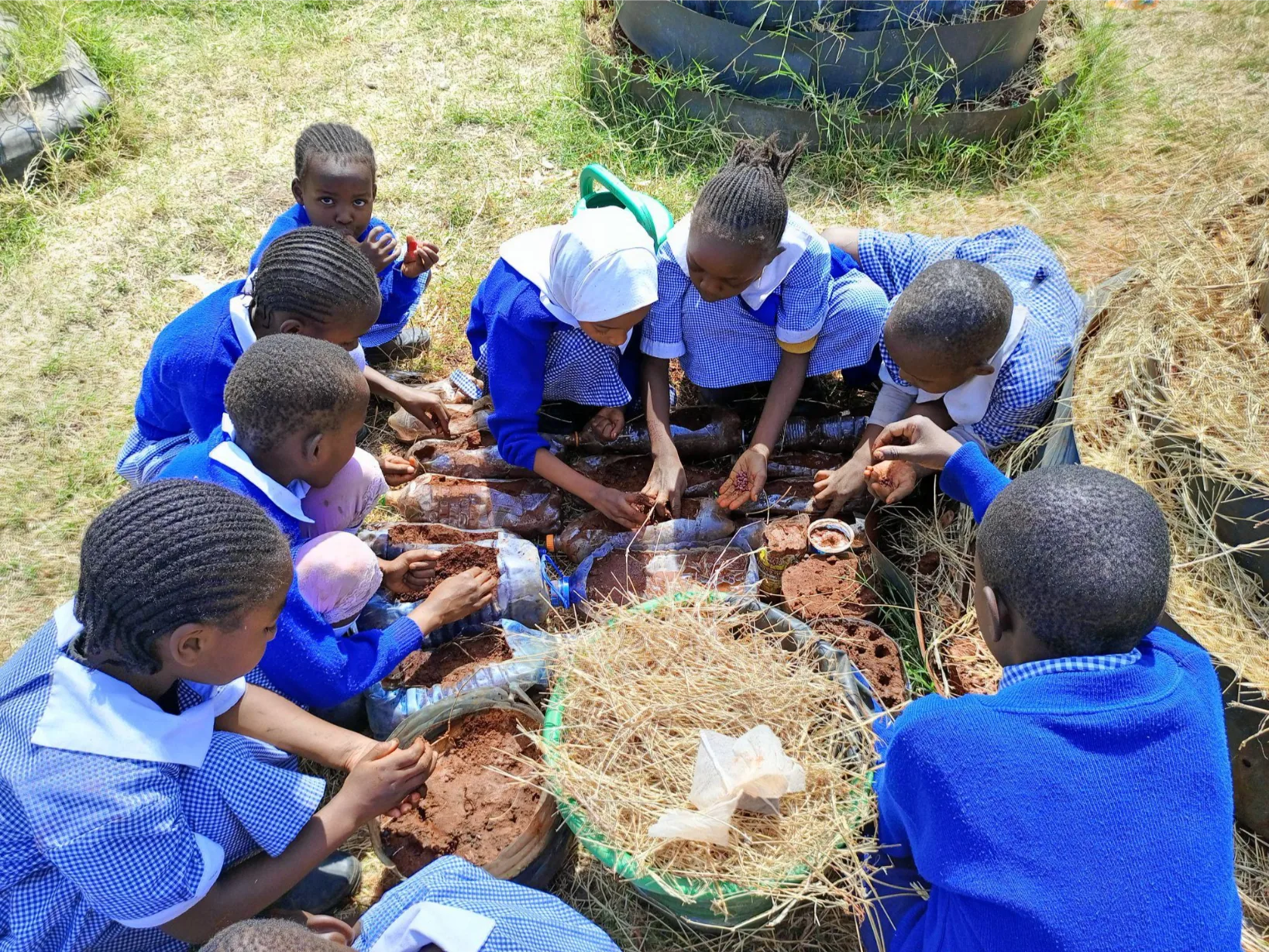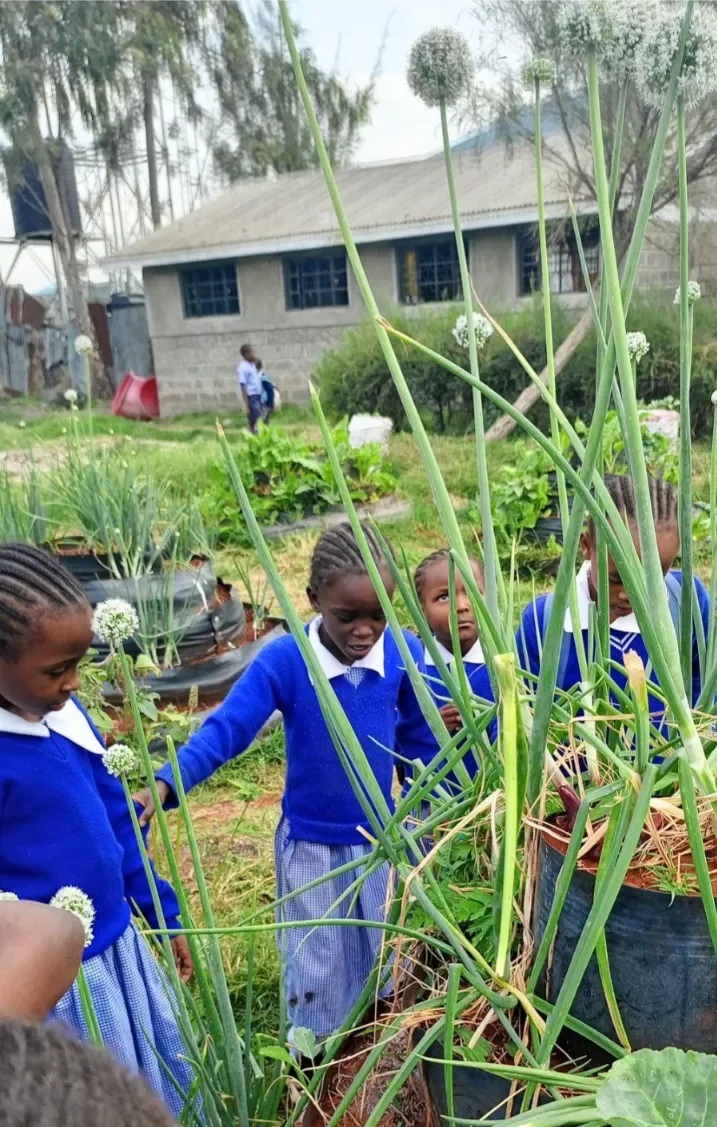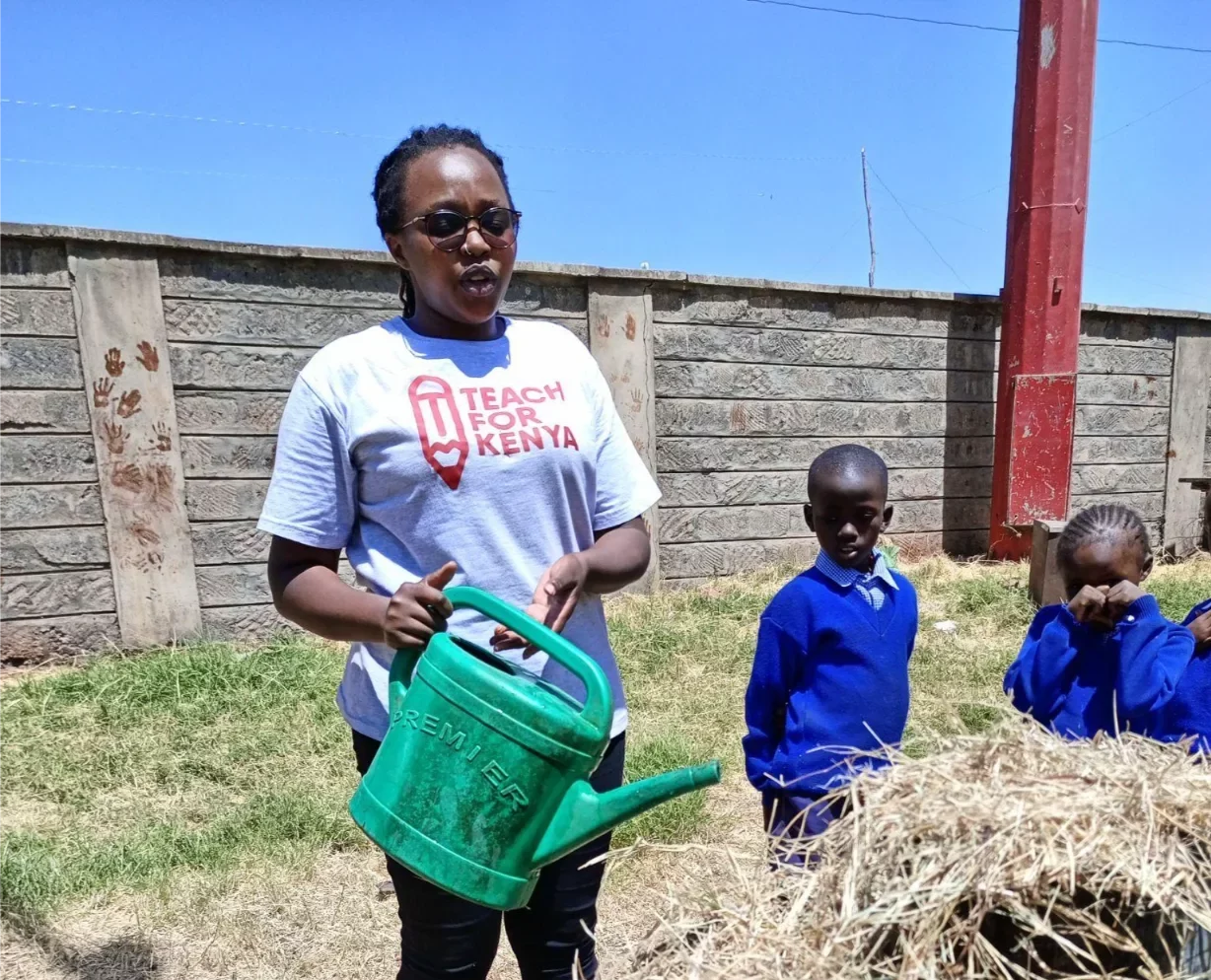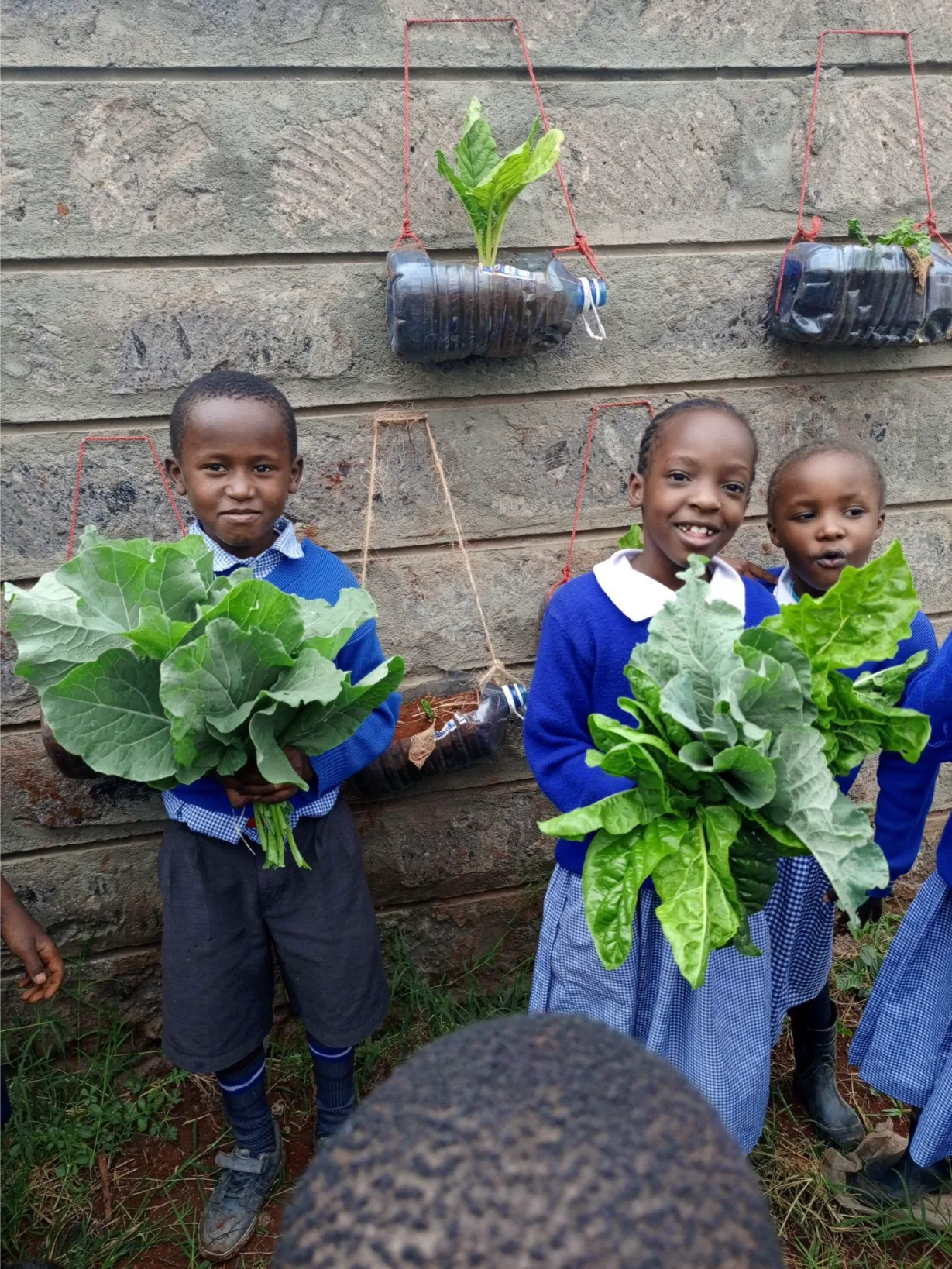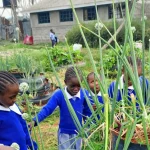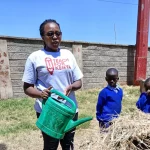Teacher: Esther Gacigi

Esther Gacigi
Esther is a climate educator with three years of teaching experience. She currently works as a Teach for Kenya fellow in the underserved community of Mukuru kwa Njenga. Focused on improving education quality for ages eight to 11, she advocates for climate education, empowering learners to take action. Her learners have implemented a climate solution that addresses food poverty and waste management. She also builds teacher capacity to incorporate climate education in the classroom. Her dedication to climate education is driven by the visible negative impacts of climate change in her community. She believes climate education is essential to prepare the next generation to tackle the climate crisis.
Overview
Kenya is experiencing many direct and indirect effects of climate change including droughts, flooding, increased food prices, people being displaced from their homes and conflict in some areas. Schooling has been affected with many children unable to attend school. This initiative aims to empower teachers to teach high-quality climate change education lessons which enable students to be more informed about climate change but also to equip them to find locally focused solutions to the issue.
Theory of Change
Esther identified that while the Kenyan population understands they have been affected by climate change -droughts and floods are now common – this crisis is perceived as being too big for individuals to take action. The Climate Education Leadership project, therefore, aims to build the agency of teachers, learners, and the community to take climate action. This is implemented in two action areas_ building capacity and readiness of teachers; and greening learning. For teachers, a Climate Education module that empowers teachers to incorporate climate education into the curriculum was developed. Learners are also engaged by being introduced to climate change concepts; and being prompted to identify problems in the community and come up with solutions.
Approach and Actions
A teacher training module has been created that focuses on teaching three main aspects_ the impact of climate change in Kenya, the role of humans in climate change and solutions that can address climate change. The module is taught in a discussion style to prompt individual teachers to bring their contexts into perspective, this leads to a more comprehensive understanding of the impacts of climate change and the solutions that are necessary. The module is also designed to prompt teachers to engage in conversation with learners and to enable students to come up with locally focused solutions to the climate crisis. Teachers are also provided with links to further resources. A teaching resource handbook is also being developed that will link key subject areas in the curriculum to climate education, for example, learning objectives related to transport are linked to the environmental impact of burning fossil fuels and activities to support this learning are provided.
Impact
The programme has so far trained 35 teachers who are now teaching the climate change module to their students. The trained teachers have begun engaging their learners with climate education and varied projects in the different schools have been started as a result of this learning. A ripple effect has been observed, families are particularly supportive of the project, one project now has five families who have created their own innovative gardens at home, reusing waste materials; and other families bring waste materials to be reused in the school garden. In the coming year, the programme aims to train more teachers and to produce a handbook for teachers to support them in their teaching.
